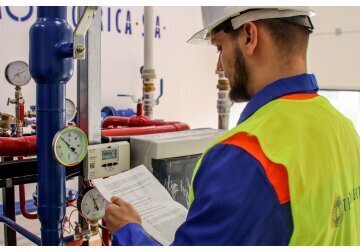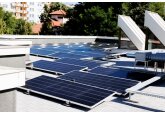
In Moldova, residents of high-rise buildings will have horizontal wiring and individual heat meters, and government buildings and new buildings will be required to connect to a centralized heat supply system.
This is provided for by legislative amendments approved by the government aimed at the development of centralized heat supply systems and highly efficient cogeneration plants. In particular, amendments to the Law on Heat Energy and Promotion of Cogeneration provide for mandatory connection/reconnection to centralized heat supply systems of buildings of government agencies and institutions, thereby demonstrating the exemplary role of the public sector in the development of centralized heat supply systems. Another important element introduced by the bill concerns the creation of unified heat supply territories, for which local public authorities will establish the obligation of consumers located in their coverage area to connect exclusively to centralized heat supply systems, and their disconnection within these zones will be prohibited, unless Full coverage of heat consumption will not be provided by renewable sources. At the same time, the bill provides for the obligation to connect newly constructed buildings, as well as buildings undergoing major repairs with the financial support of the Energy Efficiency Fund in the Residential Sector, to the centralized heat supply system, if technically possible. Another amendment concerns the ability of heat and power utilities to invest in the reconstruction of internal heat distribution systems in residential buildings to modernize them and increase efficiency by replacing Soviet vertical systems with horizontal distribution systems. Energy companies will also be able to equip each apartment with individual meters. “Residents of houses with horizontal distribution systems, individual heating points and meters per apartment will be able to individually control the coolant flow. For them, the concept of “heating season” will disappear,” said Energy Minister Victor Parlicov. In order to be able to intervene in intra-house networks, energy companies will have to establish a network demarcation point together with residents. Currently, it is located against the wall of the building, and residential building managers are responsible for the correct and efficient administration of internal networks. Many of these types of institutions are in bankruptcy, unable to provide the level of investment required to maintain networks in satisfactory condition. The bill also provides for the obligations of thermal power enterprises to use energy from waste and renewable energy sources, as well as to store energy, with the inclusion of these actions in enterprise development plans based on a cost-benefit analysis. Another proposed change is related to the creation of the necessary prerequisites for attracting financing in the heat power sector for the restoration and modernization of heat and power plant equipment by concluding energy efficient contracts with energy service providers in accordance with the provisions of the Energy Efficiency Law. It is planned that the changes made will bring a number of benefits: savings in primary energy (natural gas) due to the combined production of heat and electricity in the amount of 4.7 million cubic meters per year; reduction of heating tariffs for the population; restoration of hot water supply; reduction of greenhouse gas emissions.// 08.07.2024 – InfoMarket.







